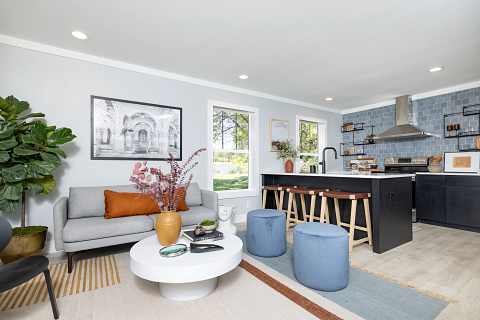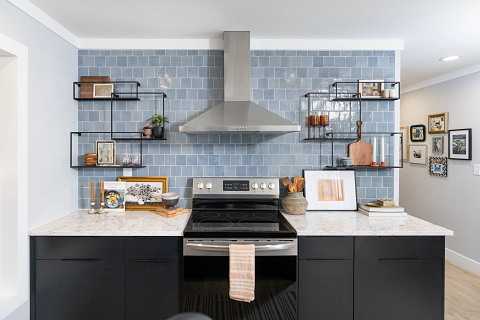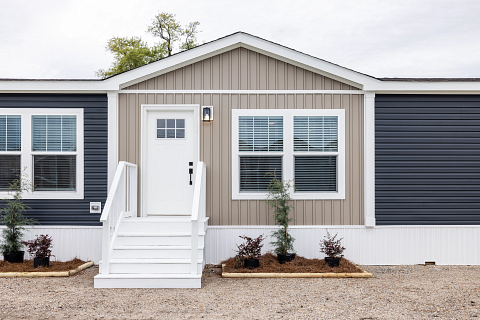


In this month’s CEO Corner, we interviewed Zach Huneycutt, Business Development Manager of Communities at Clayton. Our conversation covered his views on the future of manufactured housing, sustainability, and the merits of factory work versus fieldwork, among other topics. We’re privileged to engage with a representative from Clayton, our largest home manufacturing partner.
What is your outlook for manufactured housing as a whole?
The current market, interest rates, and inflation highlight an unprecedented need for attainable housing in America. Increasingly, people are turning to the off-site construction industry, to companies like Inspire, seeking quality homes that fit their budgets. As each month passes, this trend grows stronger, indicating a promising year ahead.
What sets Clayton apart from other builders in the industry?
What truly distinguishes us in the industry is our culture. Visit our facilities, and you’ll see that our team lies at the heart of our company. We prioritize the team member experience, aiming to create a second home for them. Regardless of our size, every department feels like a close-knit family. The company’s defining factor is its emphasis on team members and the cherished culture. We strive to be a place where everyone feels valued and connected, not just another desk job.
What are the benefits of the construction process in a factory setting vs. on-site?
Building your house in our factory means over 200 team members work on it simultaneously in a climate-controlled environment, ensuring minimal delays. Unlike site-built projects where processes are sequential, our facilities ensure every team member has the precise materials they need instantly. This efficiency allows them to refine their tasks daily and minimizes waste. The key differences are our climate-controlled setting and our streamlined process, enabling us to deliver quality products swiftly.
What steps does Clayton take to incorporate sustainable and eco-friendly practices into your manufacturing process?
All of our home-building and supply facilities are ISO-14001 certified, helping us reduce waste and energy consumption. Through our programs, we diverted 49,000 tons from landfills last year, equivalent to 392,000 residential trash cans. Having worked at a Clayton facility in North Carolina, witnessing the waste management process firsthand was impactful. Understanding the scale of our diversion efforts truly amazed me. We’ve also partnered with the Arbor Day Foundation, committing to plant 4.47 million trees by 2025 to help restore vital ecosystems across the country.
Are there any cutting-edge building materials, practices, etc. that you can share about Clayton?
We’ve launched a significant initiative: Clayton eBuilt™ homes, now available at all our facilities. These are the most energy-efficient homes we’ve ever produced, meeting the Department of Energy’s Zero-Energy Ready Home™ specifications. With energy costs rising sharply – up 14.1% last year and expected to increase another 10% this year – these homes are crucial. While most focus on mortgage or rent costs, they overlook soaring utility bills. Our e-built homes aim to reduce energy costs by 40% to 50%.
These homes can potentially offset energy consumption with an added renewable energy source. It’s a pioneering initiative. To learn more, check out our website, claytonhomes.com, online press releases, and LinkedIn page. We’re eager to see, by year’s end, how many eBuilt™ homes we’ve produced in the first six months since its launch.
Is that at a cost that’s higher than a home that isn’t eBuilt™? What’s the financial impact of that?
You might wonder about the cost of our new eBuilt™ home program. Fortunately, we’ve managed to offset these costs, meaning the upgraded insulation, windows, and doors generally come at no extra charge to consumers. We seized the chance to help our customers receive the best product at the lowest operating expense.
Can you describe Clayton’s quality control processes and measures to ensure the homes meet high standards?
Each of our facilities employs a gateway program for quality control. Depending on the facility’s size, there are three to four “gatekeepers” stationed along the production line. These gatekeepers, equipped with iPads, ensure real-time issue resolution. Nothing proceeds past them without approval. If a problem arises, it’s logged instantly, notifying the department to address it before moving forward. A final gatekeeper ensures quality at the end of the line before the product is dispatched to the field.
Finally, what are the benefits for employees working in a factory setting versus constructing a home on-site?
One key reason we retain many team members is the comfort of our climate-controlled home-building facilities. Unlike site-built environments exposed to weather, our workers are sheltered from harsh elements. While occasional delays in materials occur, our reliable vendors ensure minimal wait times, keeping supplies consistently available for our team.
Another benefit of building in a facility setting is that we avoid the delays common in site-built projects where one contractor often waits for another to finish. For instance, if drywall installers await an electrician who’s delayed, they lose work hours. Such inconsistencies can be challenging, especially for families. We’re proud to offer our team a stable and predictable work schedule.
Finally, a benefit of working at Clayton specifically is that we emphasize a zero-overtime culture, ensuring our team completes their tasks within regular hours. This approach provides them with the tools and skills to work efficiently, allowing them to spend quality time with their families in the evening. I’ve personally witnessed the benefits, with team members wrapping up by 3:30 PM after a 7 AM start. A consistent schedule and a comfortable work environment are vital. Treating our team right is essential for optimal business performance.


